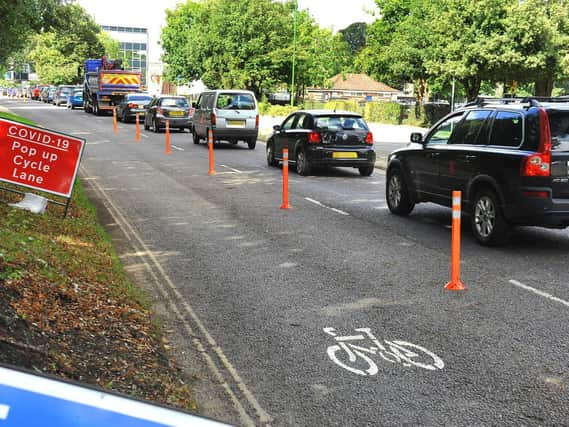Chichester pop-up cycle lanes: ‘We’re far too used to using our cars’


The decision ties in with the general lack of long-term consideration from local government of the bigger picture.
Yes, better thought could have been taken to actually consider where people currently cycle and get across Chichester and do something more effective. However, bearing in mind 65 per cent of all car trips are five miles or less, with ten per cent being under a mile, it is clear that here in the UK we have become far too used to using a car for unnecessary journeys.
Advertisement
Hide AdAdvertisement
Hide AdIs it any wonder the UK is now the most overweight nation in Europe, with two-thirds of adults either overweight or obese? Ten per cent of the NHS budget is now devoted to dealing with diabetes, the majority of which is weight related.
Overweight people are more likely to suffer badly, or die, if they catch Covid-19.
Over the years, there have been many surveys asking people why they don’t cycle more, and consistently about two-thirds say they’re too scared to cycle on the roads.
And yet statistically, you’re just as likely to be hit by a car when you’re walking along the pavement as a pedestrian than you are as a cyclist on the road. Therefore, to overcome these issues, rather than removing segregated cycle lanes, councils should be putting far more in, as well as other measures such as closing of rat-runs to cars, to actively encourage people to move around locally on foot or by bike.
Advertisement
Hide AdAdvertisement
Hide AdThe evidence from other towns and cities in the UK, in line with other countries such as Denmark and the Netherlands, shows that not only is cycle infrastructure far more cost effective than providing new roads for cars, but it benefits the local economy more by encouraging people to spend more time and money in local shops rather than driving out of town.
Therefore, it’s vital for everyone’s health and wealth for councils to make it easier to walk and cycle locally, as everyone benefits.
Comment Guidelines
National World encourages reader discussion on our stories. User feedback, insights and back-and-forth exchanges add a rich layer of context to reporting. Please review our Community Guidelines before commenting.